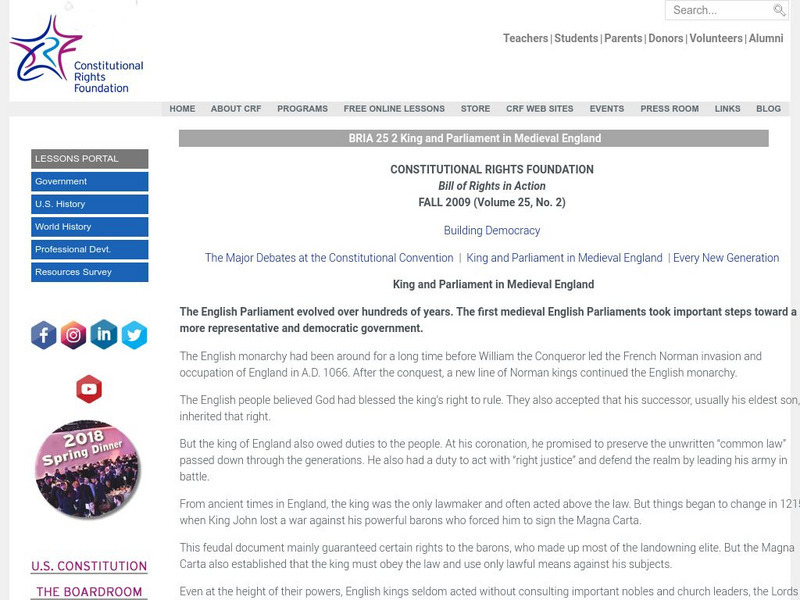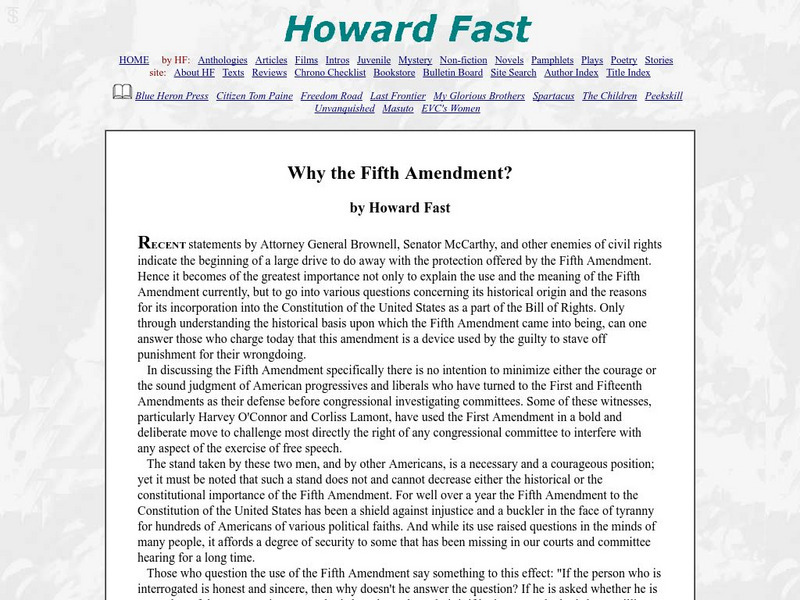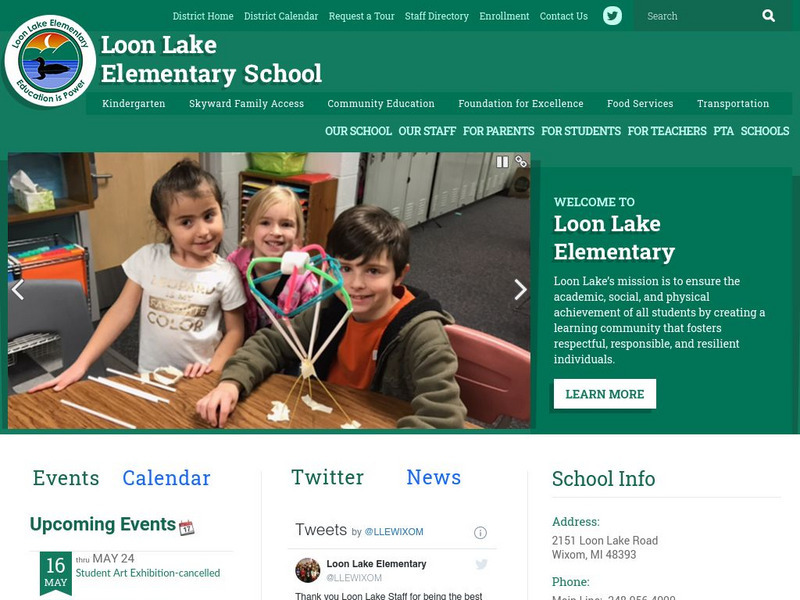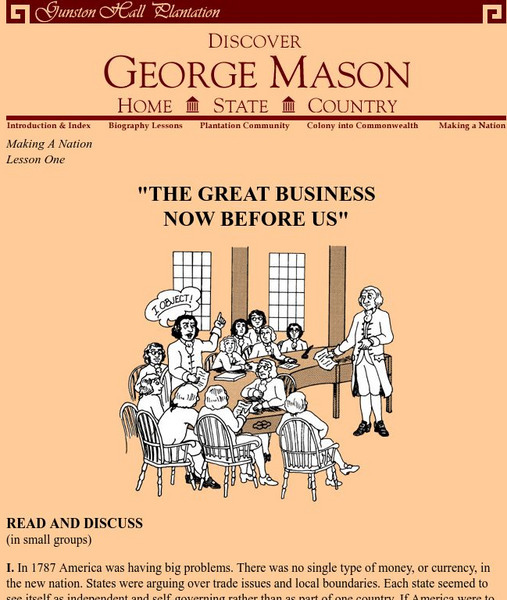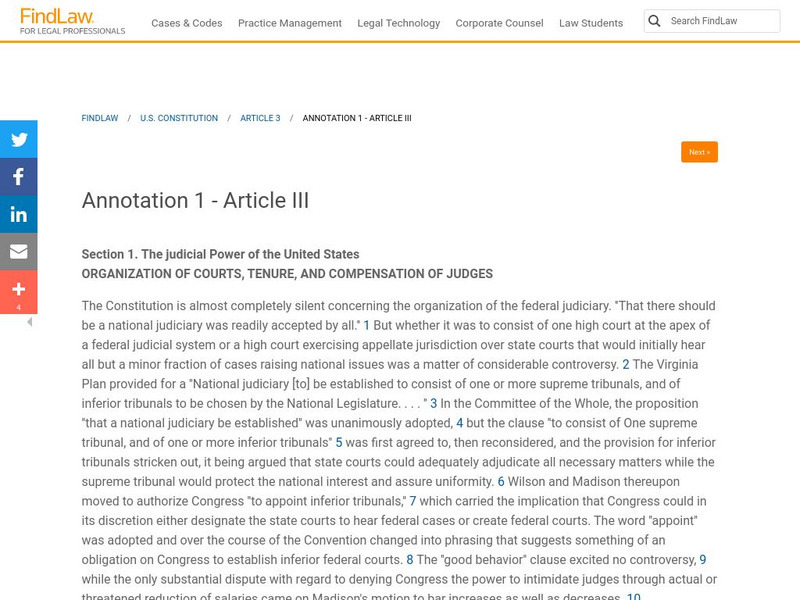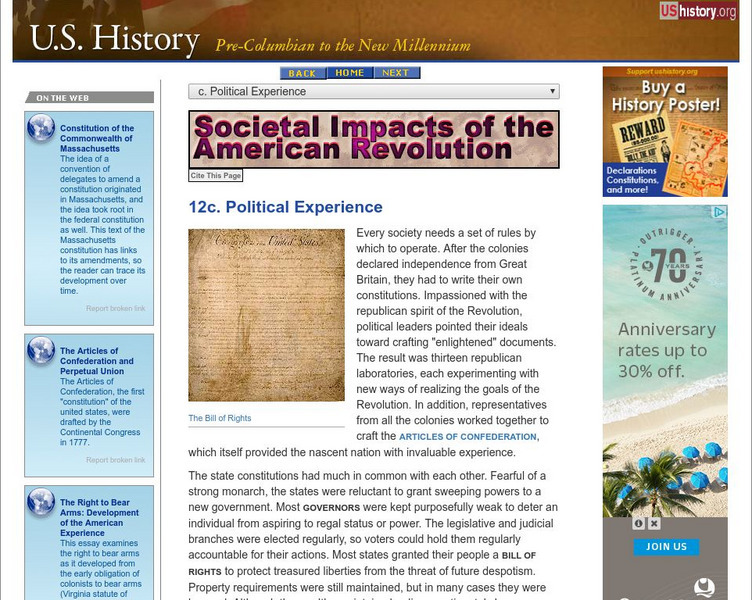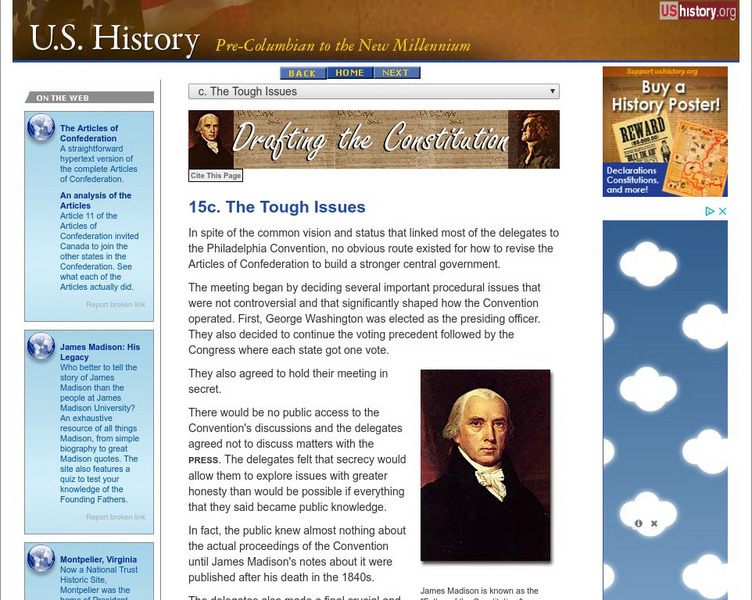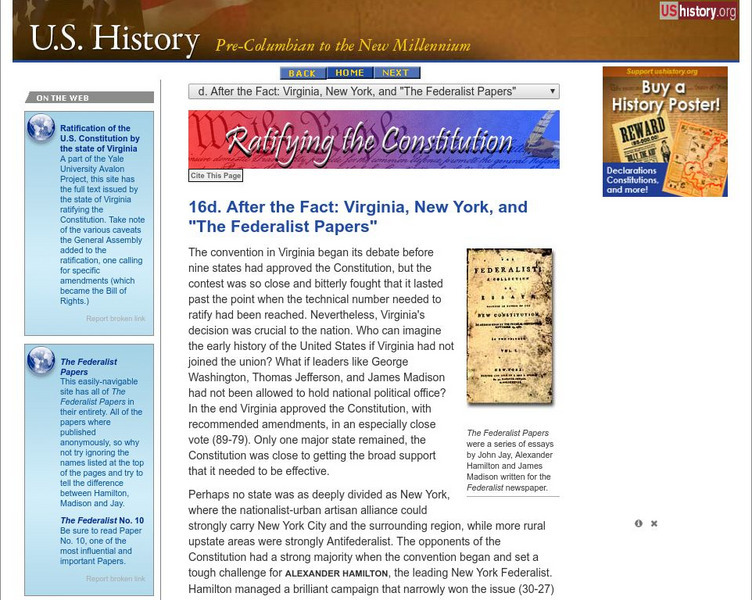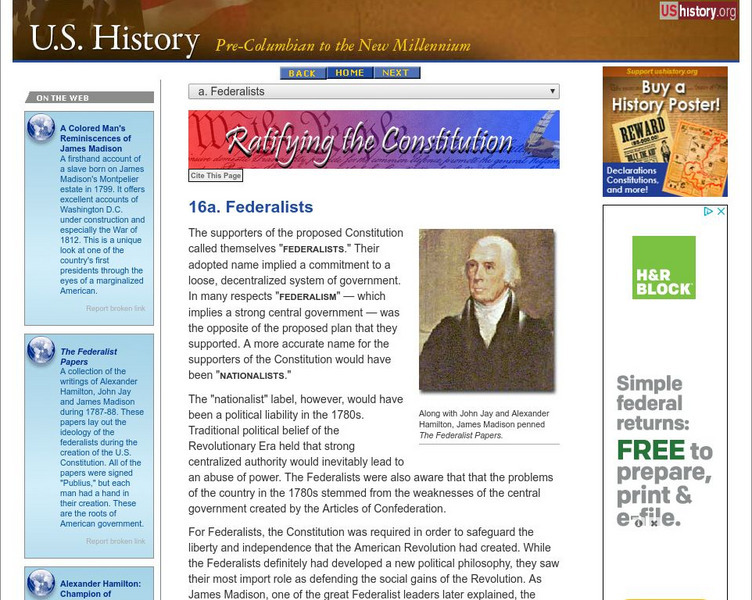Hi, what do you want to do?
Constitutional Rights Foundation
Constitutional Rights Foundation: King and Parliament in Medieval England
Activity in which students read and write about the development of democratic ideas in Medieval England, then in small groups, compare U.K. Parliamentary system to U.S. Presidential system.
Other
Why the Fifth Amendment? By Howard Fast
This article, written by Howard Fast in 1954, attacks the government and Senator Joseph McCarthy for leading away from the rights protected by the amendment.
Ducksters
Ducksters: Us Government for Kids: Constitution Amendments
Kids learn about the amendments in the United States Constitution. Seventeen not included in the Bill of Rights of the twenty-seven total.
Ducksters
Ducksters: Us Government for Kids: United States Bill of Rights
Kids learn about the Bill of Rights of the United States government. The first 10 amendments to the Constitution.
Walled Lake Consolidated Schools
Loon Lake Elementary: Branches of Government
A concise, organized table of information breaking down the three branches of government which govern the United States of America.
Other
Gunston Hall Plantation: "The Great Business Now Before Us"
In 1787, America was having big problems. There was no single type of money, or currency, in the new nation. States were arguing over trade issues and local boundaries. Each state seemed to see itself as independent and self-governing...
Khan Academy
Khan Academy: Roles and Powers of the President: Foundational
This resource from Khan Academy provides foundational practice questions the roles and powers of the president. These questions are intended for students taking high school or college level American Government and Civics courses,...
Khan Academy
Khan Academy: Challenges of the Articles of Confederation
This resource from Khan Academy provides a study resource about the weaknesses of the Articles of Confederation, Shay's Rebellion, and the needed call for a new Constitution. These questions are intended for students taking high school...
Thomson Reuters
Find Law: Article Iii: Organizations of Court, Tenure, & Compensation
This resource covers Article III, Section 1, which focuses on the judicial branch of the United States government.
US Government Publishing Office
Ben's Guide to u.s. Government: President's Legislative Powers
An easy-to-understand discussion on the actual legislative powers of the president and the veto. Includes related links.
US Government Publishing Office
Ben's Guide to u.s. Government: President of the u.s. Requirements & Term
A short paragraph on the requirements for holding the president or vice-president position. There is also a paragraph on the number of terms they can serve.
Bill of Rights Institute
Bill of Rights Institute: Founding Principles
Below, you will find suggested definitions of each principle. Click here to read the words of James Madison, a primary contributor to the Constitution, and other Founders on these principles.
Digital History
Digital History: Hamilton, Jefferson, First National Bank of the Us [Pdf]
As with so many other ideas, Thomas Jefferson and Alexander Hamilton were on opposite sides of the formation of a national bank. Read why Hamilton thought it was a great idea, why Jefferson opposed it, and what they each wrote to...
US Government Publishing Office
Ben's Guide to u.s. Government: The Articles of Confederation, 1781
Gives a nice history of the Articles and also a summary of what they were and the problems that developed with their adoption. Includes links to the actual document.
US Government Publishing Office
Ben's Guide to u.s. Government: Election of the President & Vice President: Electoral College
Provides information on the Electoral College and how we use this system to elect the President of the U.S. Features links to much more information on the election.
iCivics
I Civics: The Federalist Debate
The ratification debate between the Federalists and Anti-Federalists gives us insight into the ideas behind both sides and a better understanding of how our government developed in its early years.
Independence Hall Association
U.s. History: Political Experience
Read about how the state governments in the new American nation served as the laboratory to try out new ideas of governing and treating citizens. See how remarkably similar the ideas put forth in state constitutions were to each other.
Independence Hall Association
U.s. History: Antifederalists
The Anti-federalists, those who opposed the ratification of the Constitution, were a diverse group. They did have specific fears about carrying out the precepts of the Constitution. Read about their fears, especially the main one, no...
Independence Hall Association
U.s. History: The Tough Issues
Read about the change of plans when delegates to the Philadelphia convention decided to write a new constitution to replace the Articles of Convention. See the ideas delegates had to address concerns of large and small states.
Alabama Learning Exchange
Alex: Articles of Confederation
This lesson looks at the development of the constitutional government in the United States. Students use technology to explore history concepts.
Independence Hall Association
U.s. History: The Antifederalists' Victory in Defeat
By 1788 eleven states ratified the Constitution, more than enough to put it into effect as the document establishing rules for the nation. Read about the goals of the Federalists in estabilishing a national government and find out how...
Independence Hall Association
U.s. History: After the Fact: Virginia, New Yok, and "The Federalist Papers"
Read about the necessity for Virginia and New York to support the ratification of the Constitution. See what influenced the vote in Virginia and how the legislature of New York was finally convinced.
Independence Hall Association
U.s. History: Federalists
A brief look at the men who supported the new Constitution and the reasons they supported it.
Independence Hall Association
U.s. History: The Bill of Rights
The Constitution spelled out the powers of the national government, but many Anti-federalists felt there should be equally explicit a guarantee of individual rights. Read about the compiliation of what became known as the Bill of Rights...





